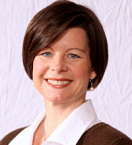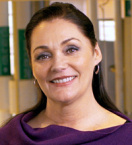This week’s article by Cathy Carroll and Margaret Wilson, called “The Experience of Succession: Re-Wired” examines how practitioners can be helpful when working with leaders and business families as they navigate succession. Using adult development theory, the authors suggest a customized approach to anticipate the challenges unique to family enterprise clients.
The Experience of Succession: Re-Wired
“The range of what we think and do is limited by what we fail to notice.”
– R. D. Lang
For members of a family enterprise, succession can trigger strong feelings of anxiety, apprehension, or ambivalence. While natural and understandable, these feelings may lead family business stakeholders to actions (or inaction) that ultimately short circuit the generational transition. As family enterprise practitioners, we can customize our approach to help families address these apprehensions.
To make sense of these fears, one can point to any number of reasons. However, we contend that the most accurate predictor of how leaders will respond to succession challenges, and therefore, the most fruitful pathway to helping them, is found in their Stage of Adult Development.
How we see the world – specifically, how we interpret our own and others’ behavior, and how our ego attempts to maintain power or protect against threats – is an excellent predictor of how we will navigate life’s biggest events, including succession.
Since the 1970s, Adult Development Theory has been a game changer for customizing our approach to working with leaders and business families. It’s a lens that helps us uncover hidden fears that are driving succession decisions and anticipate the challenges that are unique to our clients based on where they are in the developmental continuum.
Most family business leaders (and practitioners!) fall into one of the following six defined stages:
- Self-Centric: Unconstrained by rules, these leaders focus on winning
- Group-Centric: Highly diplomatic, these leaders crave acceptance and approval
- Skill-Centric: Seeking perfection, these leaders respect expertise
- Self-Determining: Fixated on results, these leaders chase achievement
- Self-Questioning: Absolute relativists, these leaders question conventional norms
- Self-Actualizing: Attuned to principles, these leaders like to reframe roles and rules
Example
As a G2 leader, Nancy grew her father’s business from a local grocery store to a regional chain during her 35 years as CEO. At 71, there’s not much that she hasn’t seen and no role that she hasn’t filled. She’s proud of how her children are performing in the business. She sets high standards and the company is a well-oiled machine.
Retirement? “Never,” Nancy says. “Why would I stop doing what I love?” Although that frustrates her children who are in their 40s, Nancy can’t imagine not leading this business. “It’s all I’ve ever done and the fact is, I’m damn good at it. Plus, my children want to do things differently, and I need to make sure they stay on track.” Nancy knows best. She always has. “Plus, what on earth would I do every day if I retired? How would I stand out among my friends?” Nancy gets defensive when people bring up retirement to her. “Do they think I’m not good at what I do?”
Stage Hypothesis
Our gentle hypothesis is that Nancy makes meaning of the world through a Skill-Centric lens. Confident that she’s right, she maintains high standards and expects perfection. Her identity draws from her professional expertise and maintaining bragging rights with her friends is critically important. Although aware of her children’s frustration, she cannot see the broader impact that her clutch on power has on the family or the business.
So how can a practitioner be most helpful to Nancy? Should the Skill-Centric hypothesis be true, we propose taking a coaching approach and asking questions that line up with how Nancy makes sense of the world and her place in it. For example, a practitioner could:
- Tap into Nancy’s desire to be perfect by asking what she will do to be among the 30% who get succession right
- Access her Skill-Centric motivations by framing succession as a problem to be solved versus some failing on her part
- Help her discover her blind spots around other people’s feelings by walking her into her children’s’ perspective in a private conversation
- Start at her comfort zone of “I already know” by asking how she can apply the skills she has strengthened over 30 years in this new place called succession
There are many other ways to help Nancy build skills, choose from credible approaches, and gain insight into how she is unique. The lesson here is to understand where clients are – and then meet them where they are.
Understanding how adults develop illuminates options we may never have noticed or thought of before. When we apply this approach in practical ways with business families, we have a conduit to understanding and avoiding many of the difficulties that people experience in succession.
About the contributors
 Cathy Carroll’s experiences as a G2 leader and G3 fiduciary of her family’s businesses led her to create Legacy Onward, Inc., a leadership coaching firm serving family businesses. Her previous Practitioner article was Myth: The goal of any family business is to maximize profits. Cathy earned an MBA from the University of Chicago and holds the Professional Certified Coach designation from the International Coach Federation. She can be reached at cathy@legacyonward.com.
Cathy Carroll’s experiences as a G2 leader and G3 fiduciary of her family’s businesses led her to create Legacy Onward, Inc., a leadership coaching firm serving family businesses. Her previous Practitioner article was Myth: The goal of any family business is to maximize profits. Cathy earned an MBA from the University of Chicago and holds the Professional Certified Coach designation from the International Coach Federation. She can be reached at cathy@legacyonward.com.
 Margaret Wilson, FFI Fellow, founded Tandem Partners in 2000 to help business families create a shared vision, navigate generational transitions, and prepare leaders for their future roles. She holds a Master’s degree in Applied Behavioral Science and the Professional Certified Coach designation from the International Coach Federation. Margaret was co-chair of the 2014 FFI conference Regional Advisory Committee. She can be reached at margaret@tandem-partners.com.
Margaret Wilson, FFI Fellow, founded Tandem Partners in 2000 to help business families create a shared vision, navigate generational transitions, and prepare leaders for their future roles. She holds a Master’s degree in Applied Behavioral Science and the Professional Certified Coach designation from the International Coach Federation. Margaret was co-chair of the 2014 FFI conference Regional Advisory Committee. She can be reached at margaret@tandem-partners.com.





